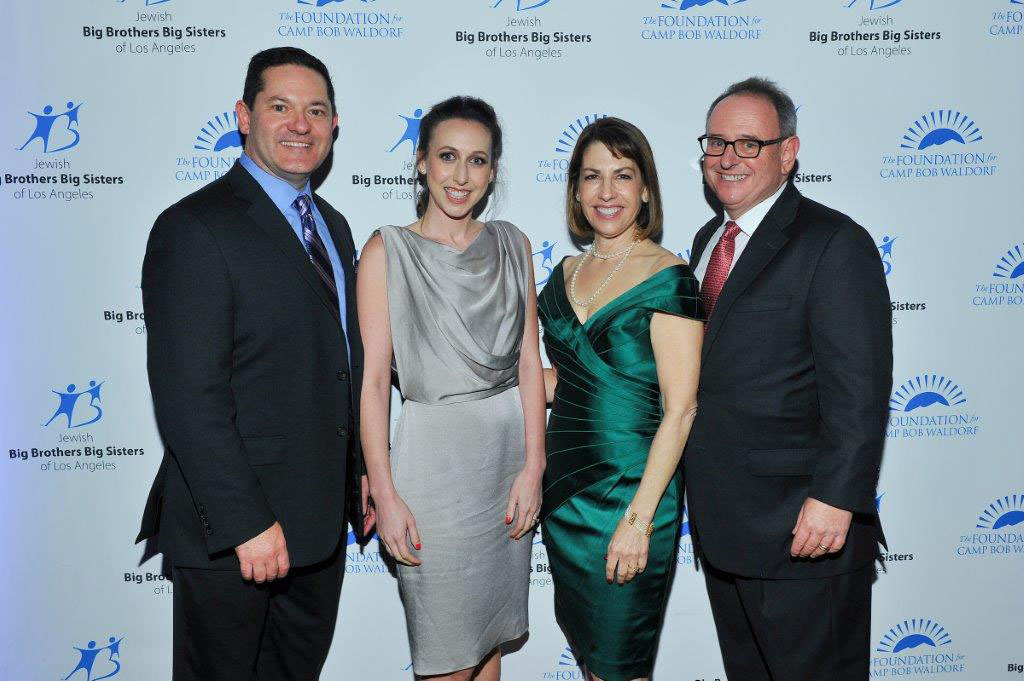 From left: Jewish Big Brothers Big Sisters of Los Angeles honorees Gary Weinhouse, Kallyn Woodward
and Elizabeth and
Glen Friedman. Photo courtesy of Jewish Big Brothers Big Sisters of Los Angeles.
From left: Jewish Big Brothers Big Sisters of Los Angeles honorees Gary Weinhouse, Kallyn Woodward
and Elizabeth and
Glen Friedman. Photo courtesy of Jewish Big Brothers Big Sisters of Los Angeles. At its annual “Big Event” on Feb. 9, Jewish Big Brothers Big Sisters of Los Angeles (JBBBSLA) honored Elizabeth and Glen Friedman with its Inspiration Award, Gary Weinhouse as Big Brother of the Year and Kallyn Woodward as Big Sister of the Year.
The agency served 1,753 children in 2016, including 225 who were matched with a “Big” and 1,311 who attended its Camp Bob Waldorf on the Max Straus Campus, said the group’s CEO, Randy Schwab.
Woodward’s “Little,” Liam Sason, presented her with the Big Sister award. Weinhouse’s “Little,” Michael Heller, a grown man who has been paired with Weinhouse since he was a little boy and today is a “Big” to a child in need, presented Weinhouse with his award.
Attendees at the event, held at the Beverly Wilshire Hotel, included longtime Big Brother Barry Oppenheim. A congregant of Temple Beth Am and father of two, Oppenheim told the Journal that volunteering with the organization has been the best thing he has done, other than having kids of his own.
Additional attendees included volunteer Alana Bram, who wore a pin that read, “I am a Big”; philanthropist Bob Waldorf; Jewish Federation of Greater Los Angeles Executive Vice President Andrew Cushnir and the organization’s director of community engagement, Ashley Waterman.
The event raised more than $400,000, according to a JBBBSLA statement.
Founded in 1915, JBBBSLA is one of three Big Brother Big Sister mentoring organizations in the Los Angeles area. It is open to all Jewish children, including those with special needs, who are in need of a positive role model.
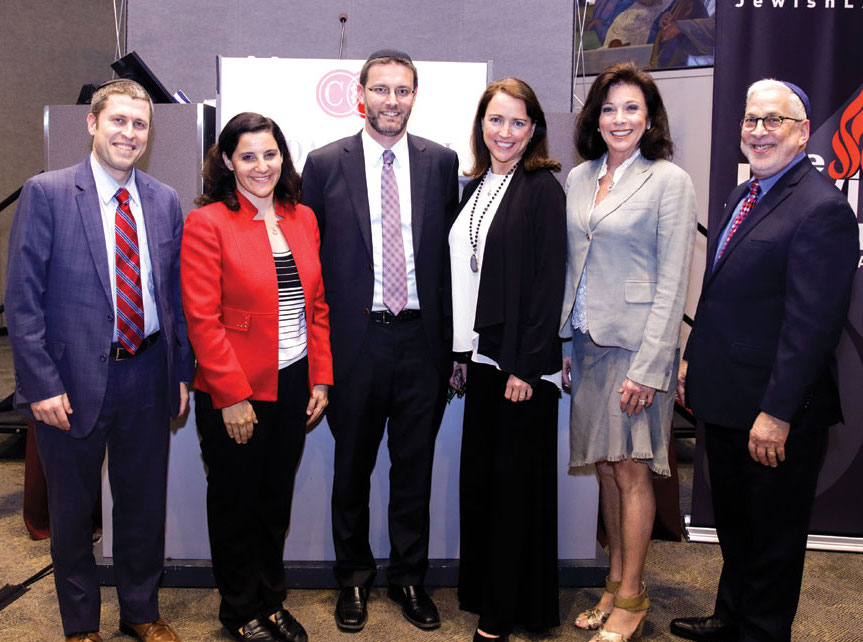
Cedars-Sinai Medical Center’s chaplain, Rabbi Jason Weiner, was installed as president of the Board of Rabbis of Southern California on Feb. 15 during a ceremony at Cedars-Sinai.
Weiner, the senior rabbi and manager of the Cedars-Sinai Spiritual Care Department since 2011, is the first chaplain-rabbi to serve as president of the Board of Rabbis in its 80-year history.
“My goal is to contribute to the ongoing professionalization of chaplaincy and to help chaplains gain better support and recognition,” Weiner said. “I also hope to bring attention to non-pulpit rabbis who may sometimes feel that their voices aren’t sufficiently heard by large, communal organizations.”
Attendees at the ceremony included Rabbi Kalman Topp of Beth Jacob Congregation and a Board of Rabbis vice president; Rabbi Amy Bernstein of Kehillat Israel, also a vice president; Rabbi Morley Feinstein of University Synagogue and the immediate past president of the board; Rabbi Ilana Grinblatt, a lecturer in rabbinic studies at the Ziegler School of Rabbinic Studies at American Jewish University; and Rabbi Lynn Brody Slome of the Academy of Jewish Religion, California.
The Board of Rabbis of Southern California is a membership organization for synagogues both large and small that provides programming and leadership training in the areas of interfaith engagement, social justice, healing and spirituality, professional development and more.
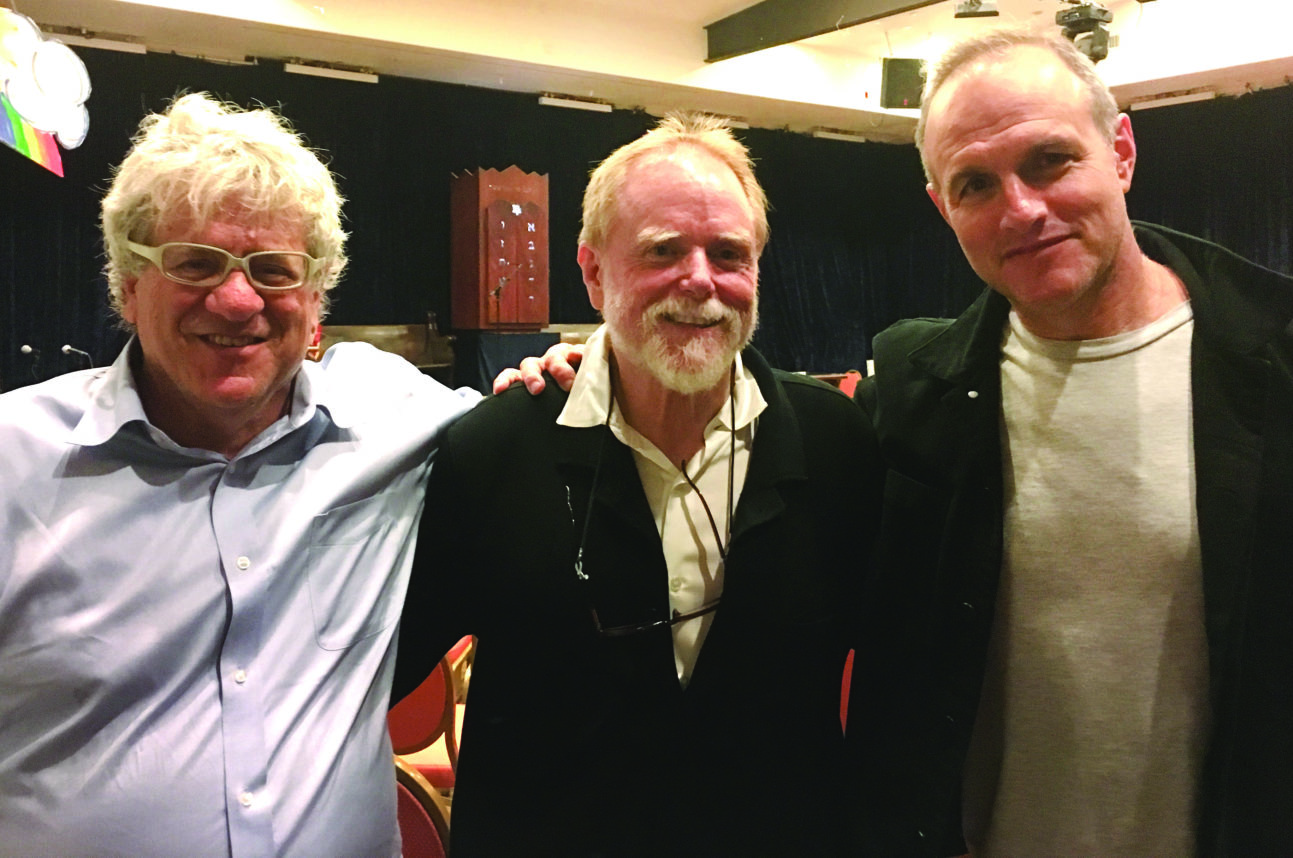
“Steve Bannon is a racist.”
“Trump is mentally unstable.”
“[Secretary of Education] Betsy DeVos is uneducated.”
Those were some of the comments from participants in a group session that Rabbi Mordecai Finley of Ohr HaTorah Synagogue held Feb. 10 in response to people’s requests for counseling on how to reduce their post-election anxiety.
Committed to an apolitical pulpit, Finley offered this overarching advice at his Los Angeles sanctuary: be vigilant, seek to understand other perspectives, take action when fears are justified by measurable outcomes and, most of all, keep calm.
“Fighters who win can take a punch and fight calm,” said the interdisciplinary rabbi, citing his martial arts training.
Avoiding polemics, Finley, a Holocaust scholar, cautioned the approximately 50 attendees not to equate President Donald Trump’s rise with the rise of Hitler.
“Don’t throw around Holocaust, Hitler and genocide until someone deserves the title,” Finley said, “because all it does is make someone hysterical.”
Rather, he advised, people should seek to reduce and avoid sensationalist, incendiary labels and comments: “Be afraid of a thing, not an indefinite phenomena.”
Referencing Abrahamic traditions, Finley advocated for a “civic covenant” to maintain constructive, open, thoughtful dialogue, especially among families and friends torn apart over the presidential election.
Citing the closing of Abraham Lincoln’s second inaugural address — “With malice toward none, with charity for all…” — Finley reminded the attendees of the bloody U.S. Civil War, which puts today’s divisive political climate in perspective.
Preaching tolerance, Finley told the rabbinic tale of Abraham kicking out a guest in the middle of the night when he found him worshipping idols, to which God responded: “I’ve had to deal with the guy for 70 years and you can’t take him for one night?” To which Finley added: “That’s part of our Jewish ethos.”
—Orit Arfa, Contributing Writer
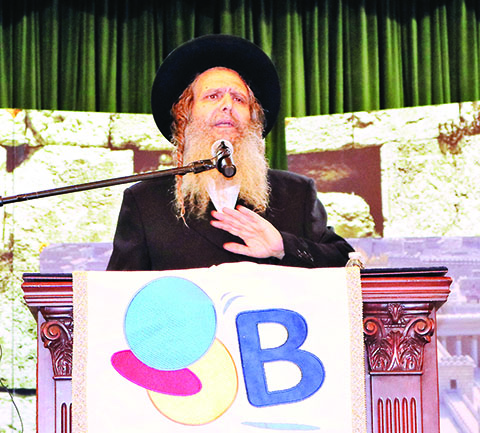 Rabbi Shalom Arush, 64, author of the best-selling books “Garden of Emuna” and “Garden of Peace,” delivered lectures at The Saban Theatre in Beverly Hills and at the Eretz Cultural Center in Tarzana on Feb. 7 and 8, respectively, to audiences totaling 2,100 people.
Rabbi Shalom Arush, 64, author of the best-selling books “Garden of Emuna” and “Garden of Peace,” delivered lectures at The Saban Theatre in Beverly Hills and at the Eretz Cultural Center in Tarzana on Feb. 7 and 8, respectively, to audiences totaling 2,100 people.
The Israeli Breslov rabbi, founder of the Chut Shel Chessed Institutions, visited from Jerusalem at the invitation of Unity 3000, a local organization founded three years ago by Ariel Perets. The organization aspires to bring together Orthodox, secular, Ashkenazi and Sephardic Jews through unity and faith, Perets said.
Jews, Muslims and Christians who have read the rabbi’s books and love his message attended the rabbi’s lectures, Perets said. Arush is not a typical Orthodox rabbi, which is perhaps one of the reasons his lectures attract Jews and non-Jews. At times during his lecture, he started singing and audience members clapped their hands in unison and joined in.
For non-Hebrew speakers, the organizers provided headphones offering translations to English and Spanish. The rabbi discussed the importance of faith in a person’s life and how everything that happens, whether it’s good or bad, happens for the best and has a reason to it.
Born in Morocco, Arush made aliyah with his parents at age 13. After graduating from high school, he served in the Israel Defense Forces’ elite naval rescue unit as an airborne combat-medic and took part in many clandestine missions. After five of his closest friends were killed in a helicopter crash while on a mission, he decided to make a change in his life and studied in several yeshivot until he discovered Breslov Judaism, a branch of Chassidic Judaism founded by Rebbe Nachman of Breslov.
Arush travels the world now giving lectures about Breslov Judaism.
At the end of each of the L.A.-area lectures, many people from the audience approached the rabbi and asked him for his blessing.
“It’s very rare to see an Orthodox rabbi who appeals to people who aren’t religious or aren’t Jewish, and that’s why I chose to bring him here for this lecture,” Perets said. “I discovered him after reading one of his books and flew all the way to Uman [a pilgrimage site in Ukraine for Breslov Jews] to see who is this person with simple wisdom that touched my heart.”
— Ayala Or-El, Contributing Writer
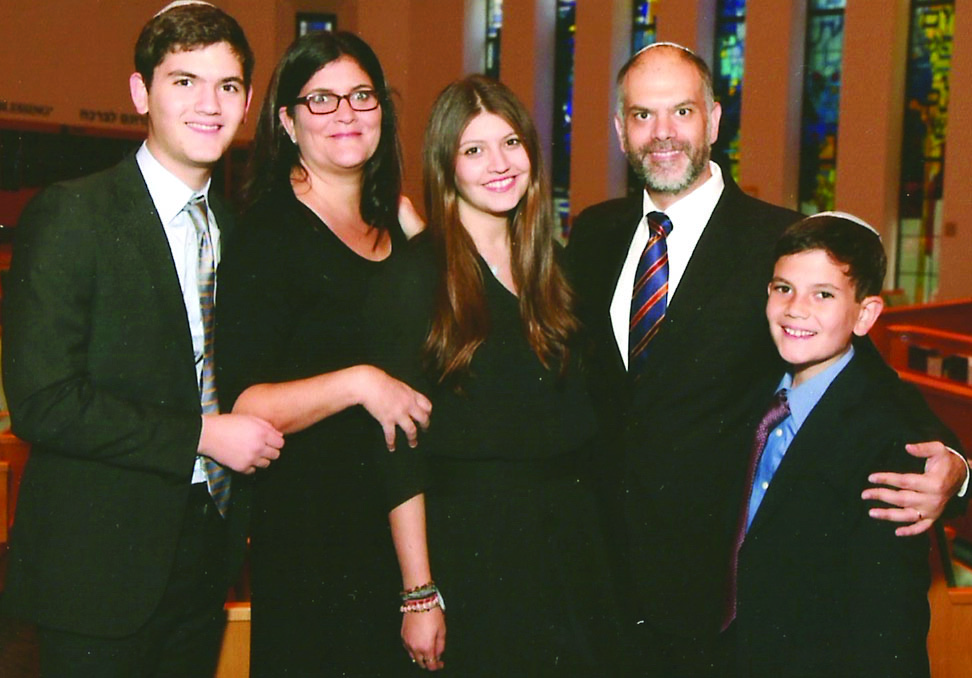
Jason Feld, Shalhevet High School’s dean of students, has accepted a position as the head of school of Northwest Yeshiva High School in Seattle, effective July 1, according to an announcement by Shalhevet’s Head of School Ari Segal.
“It’s a wonderful community and amazing school, and I think I have something to add and contribute to it,” Feld said in an interview. “I am very, very excited about it.”
“While we will sorely miss Jason and his family, we are so happy for him as he embarks on this exciting new chapter of his career,” Segal said in the Jan. 30 statement.
A successor for Feld, who has been at Shalhevet for 10 years as a teacher, administrator and student adviser, has not yet been named.
“We are exploring all of our options, including filling the components of the role internally,” Segal told the Journal in an email. “Just happy for Jason and also for Shalhevet to be a talent feeder to other schools.”
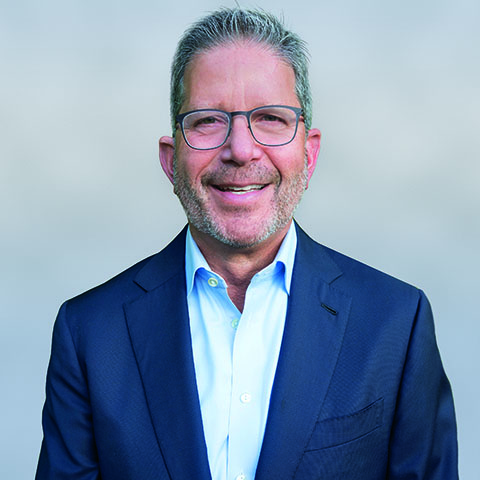 William Feiler has succeeded Lawrence Rauch as the chair of the Jewish Community Foundation of Los Angeles, effective Feb. 2.
William Feiler has succeeded Lawrence Rauch as the chair of the Jewish Community Foundation of Los Angeles, effective Feb. 2.
The leadership transition at the grant-making organization follows a four-year term served by Rauch.
During Rauch’s term, the foundation surpassed $1 billion in assets, attracted more than $508 million in charitable contributions and distributed more than $322 million in grants locally, nationally and in Israel, said Lewis Groner, the foundation’s director of marketing and communications.
Feiler, a longtime donor, trustee and officer at the foundation, is the former managing director and founding member of Bel Air Investment Advisors.
“He possesses the insight and understanding of our mission, our operating practices and unique position we occupy in the Jewish and general community,” Groner said of Feiler. “He just has long-term experience with us.”
Moving & Shaking highlights events, honors and simchas. Got a tip? Email ryant@jewishjournal.com.























 More news and opinions than at a Shabbat dinner, right in your inbox.
More news and opinions than at a Shabbat dinner, right in your inbox.